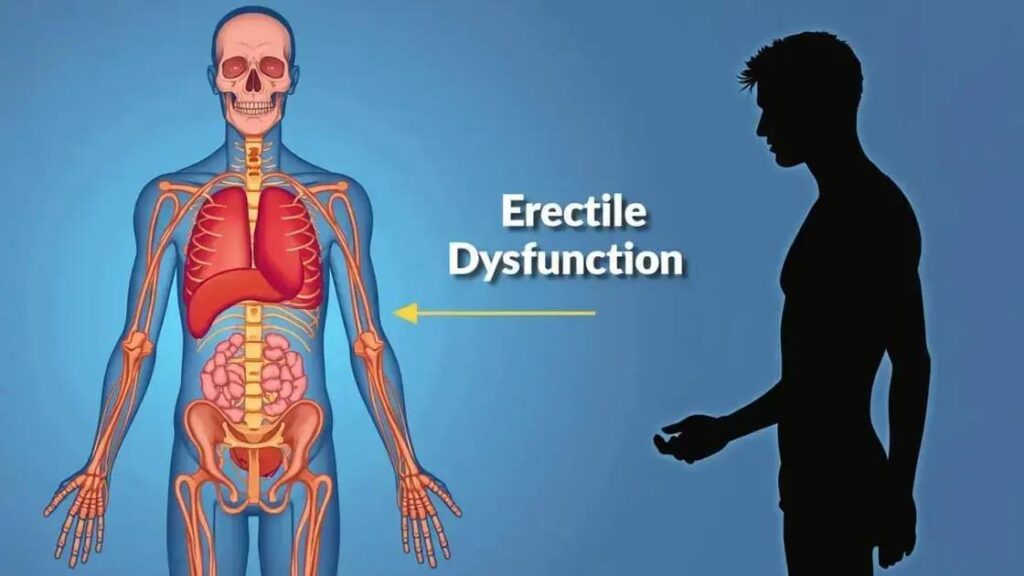Nerve damage can play a significant role in erectile dysfunction (ED), affecting the signals necessary for achieving and maintaining an erection. Early diagnosis, preventive measures such as maintaining a healthy lifestyle and managing chronic conditions, and various treatment options including medications and counseling are essential for addressing nerve-related ED and improving sexual health.
Erectile dysfunction (ED) affects millions of men, with nerve damage often being a key factor. Understanding the role of nerve damage in erectile dysfunction is essential for effective diagnosis and treatment. Exploring how nerves communicate with the body sheds light on the broader implications of sexual health. In this article, we will examine the causes of ED, including the impact of nerve damage, potential diagnostic methods, and available treatments to help men regain their confidence.
Understanding Erectile Dysfunction and Its Causes
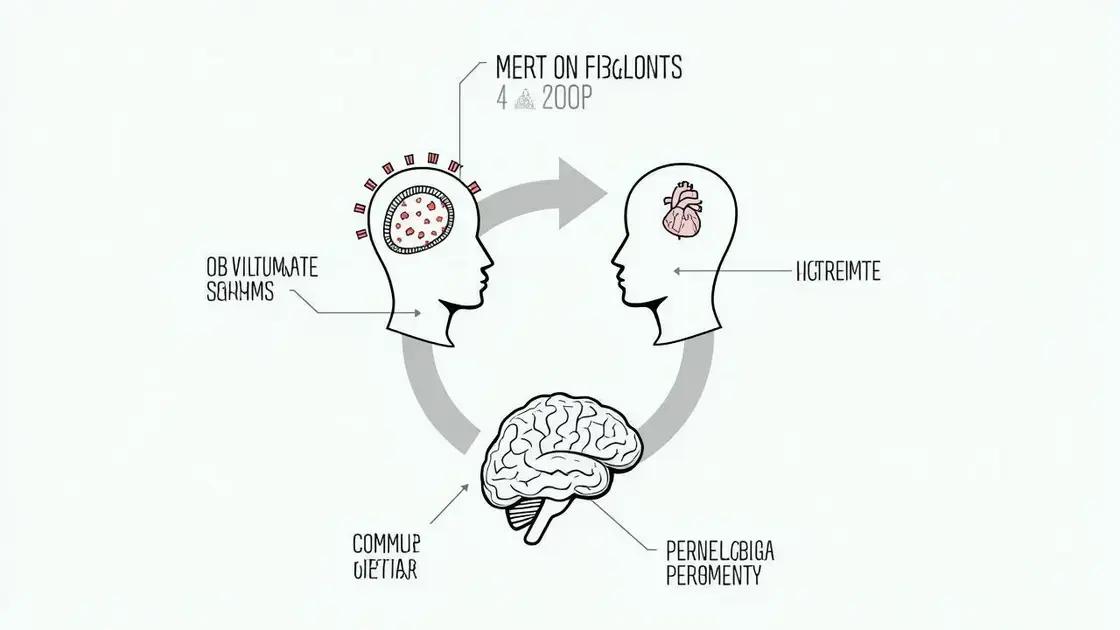
Erectile dysfunction (ED) is a common condition that affects many men, often leading to emotional distress and relationship issues. It is defined as the inability to achieve or maintain an erection sufficient for satisfactory sexual performance. Understanding erectile dysfunction involves recognizing various causes that contribute to this condition.
Physical Causes
Several physical factors can lead to erectile dysfunction. Common issues include:
- Heart disease: Conditions affecting blood flow can hinder the ability to achieve an erection.
- Diabetes: High blood sugar levels can damage blood vessels and nerves, impacting erectile function.
- Obesity: Excess weight can contribute to diabetes and heart disease, increasing the risk of ED.
- Hormonal imbalances: Low testosterone or other hormonal issues can play a significant role in sexual dysfunction.
Psychological Causes
In addition to physical causes, psychological factors can also contribute to erectile dysfunction:
- Stress and anxiety: Worrying about sexual performance can create a cycle of anxiety that worsens ED.
- Depression: Mental health conditions can affect libido and lead to difficulties in achieving and maintaining an erection.
- Relationship issues: Difficulties in a relationship can contribute to feelings of stress and anxiety, impacting sexual performance.
Neurological Causes
Neurological conditions can also affect erectile function. If the nerves that control erections are damaged, this can lead to ED. Conditions such as:
- Spinal cord injuries: Damage to the spine can disrupt the signals necessary for achieving an erection.
- Multiple sclerosis: This disease impacts the nervous system and can lead to ED.
- Parkinson’s disease: Another neurological condition that can cause difficulties with erections due to nerve damage.
Effects of Lifestyle Choices
Several lifestyle choices can influence erectile dysfunction:
- Smoking: This can affect blood flow and lead to vascular issues.
- Excessive alcohol consumption: Alcohol can dampen sexual desire and performance over time.
- Lack of physical activity: A sedentary lifestyle can contribute to obesity and cardiovascular problems, increasing the risk of ED.
By understanding the various causes of erectile dysfunction, individuals are better equipped to address the condition and seek appropriate treatment options.
How Nerve Damage Affects Sexual Health
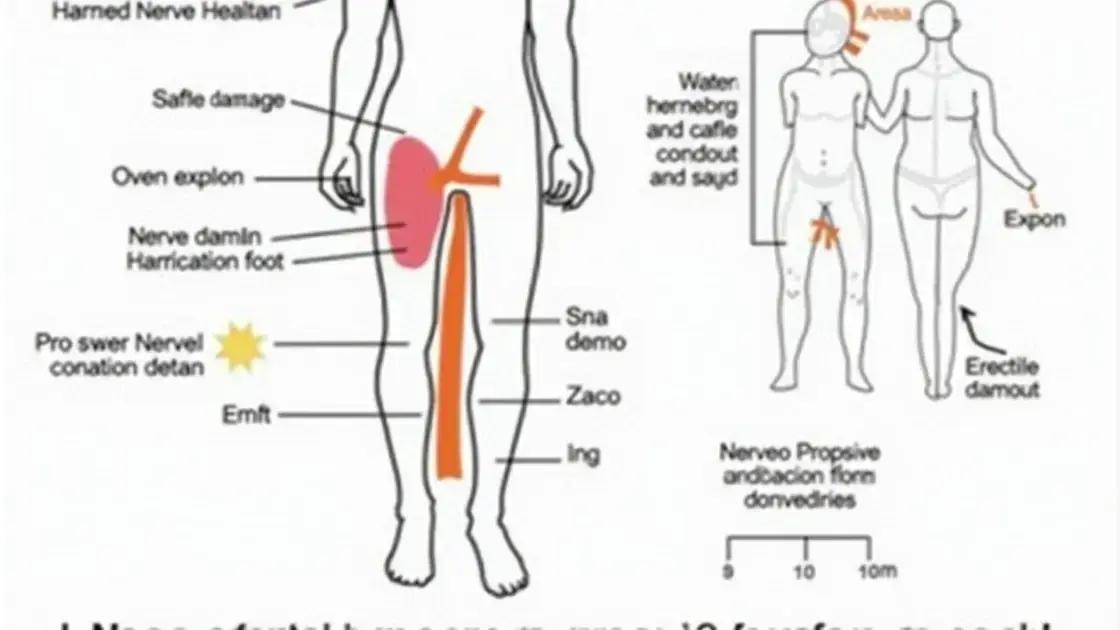
Nerve damage can significantly impact sexual health, leading to various difficulties, including erectile dysfunction. The nerves play a crucial role in the body’s ability to achieve and maintain an erection. When nerve damage occurs, it disrupts the communication between the brain and the reproductive system.
Types of Nerve Damage
There are several types of nerve damage that can affect sexual health:
- Peripheral neuropathy: This condition involves damage to the peripheral nerves, which can cause numbness, tingling, and weakness in the genital area.
- Spinal cord injury: An injury to the spinal cord can affect signals necessary for achieving an erection, resulting in various degrees of erectile dysfunction.
- Nerve compression: Conditions that compress nerves, such as herniated discs, can interfere with sexual function by limiting nerve signals.
The Mechanism of Nerve Damage
When nerves are damaged, they may become less effective at sending signals. This can lead to:
- Reduced sensation: Damage to nerves can decrease sensitivity in the genital area, making arousal more challenging.
- Impaired blood flow: Nerve signals help arteries open up during arousal. If these signals are impaired, blood flow can be restricted, leading to erectile dysfunction.
- Loss of reflexes: The reflex actions that contribute to erections can be affected, leading to difficulties in achieving or maintaining an erection.
Psychological Effects
Nerve damage not only affects physical capabilities but can also have psychological impacts:
- Low self-esteem: Facing difficulties in sexual function can lead to stress and lower confidence.
- Performance anxiety: Concerns about sexual performance can exacerbate the ED, creating a cycle of anxiety that worsens the condition.
- Relationship strain: Challenges in sexual health can lead to tension between partners, further complicating the situation.
Addressing Nerve Damage
Recognizing the role of nerve damage in sexual health is essential for effective treatment. Therapy options may include medication, lifestyle changes, and counseling to manage both the physical and psychological aspects of erectile dysfunction.
Diagnosis and Treatments for Nerve-Related ED
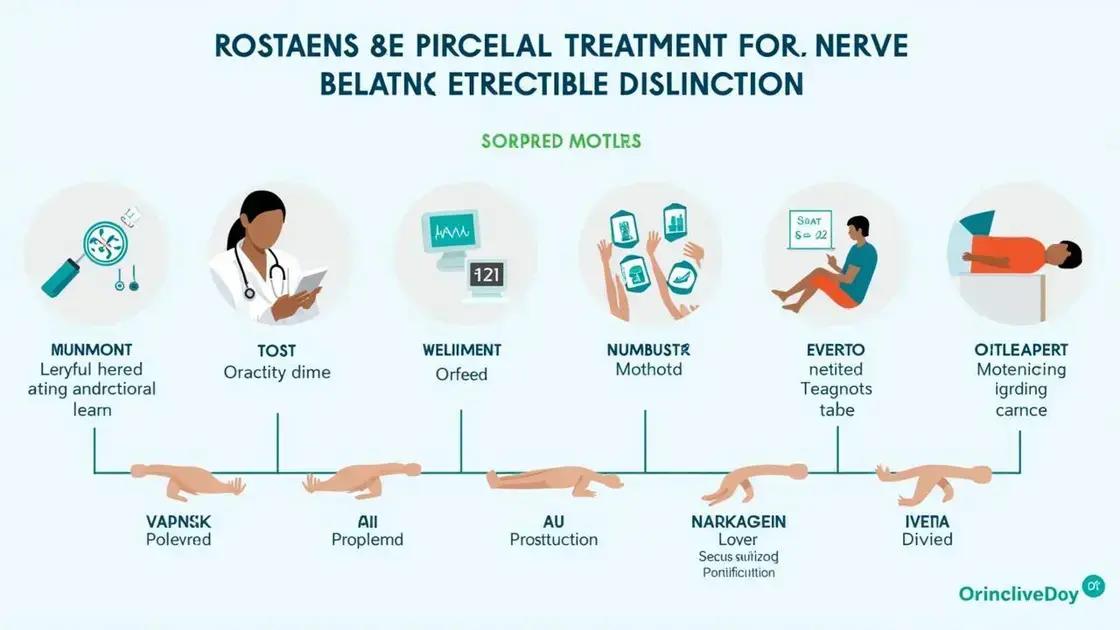
Diagnosis of nerve-related erectile dysfunction (ED) starts with a thorough medical history and physical examination. Healthcare providers will ask about symptoms and any underlying health conditions. They may also conduct tests to assess nerve function and blood flow.
Medical History
A doctor will inquire about:
- Current medications: Some drugs can cause ED as a side effect.
- Chronic illnesses: Conditions like diabetes can lead to nerve damage.
- Previous injuries: Past surgeries or injuries to the pelvis or spine are important to discuss.
Physical Examination
A healthcare provider will perform a physical exam, focusing on:
- Genital examination: This helps rule out any physical abnormalities.
- Pulses in the groin and feet: Checking for blood flow and circulation.
- Nerve function tests: Assessing reflexes and sensations.
Diagnostic Tests
In some cases, additional tests may be necessary:
- Ultrasound: This imaging test evaluates blood flow to the penis.
- Blood tests: To check hormone levels, cholesterol, and blood sugar levels.
- Nerve conduction studies: These tests measure how well nerves transmit signals.
Treatment Options
Treatment for nerve-related ED may involve various approaches:
- Medications: Phosphodiesterase type 5 (PDE5) inhibitors, like Viagra or Cialis, can enhance blood flow to the penis.
- Counseling: Psychological counseling can help address the emotional side of ED.
- Vacuum erection devices: These devices create a vacuum that encourages blood flow to the penis.
- Psycho-therapy: This can help with performance anxiety or stress related to ED.
- Surgery: In severe cases, surgical interventions, such as penile implants, may be considered.
Regular follow-ups with a healthcare provider are necessary to monitor progress and make adjustments to the treatment plan as needed.
Preventive Measures Against Nerve Damage
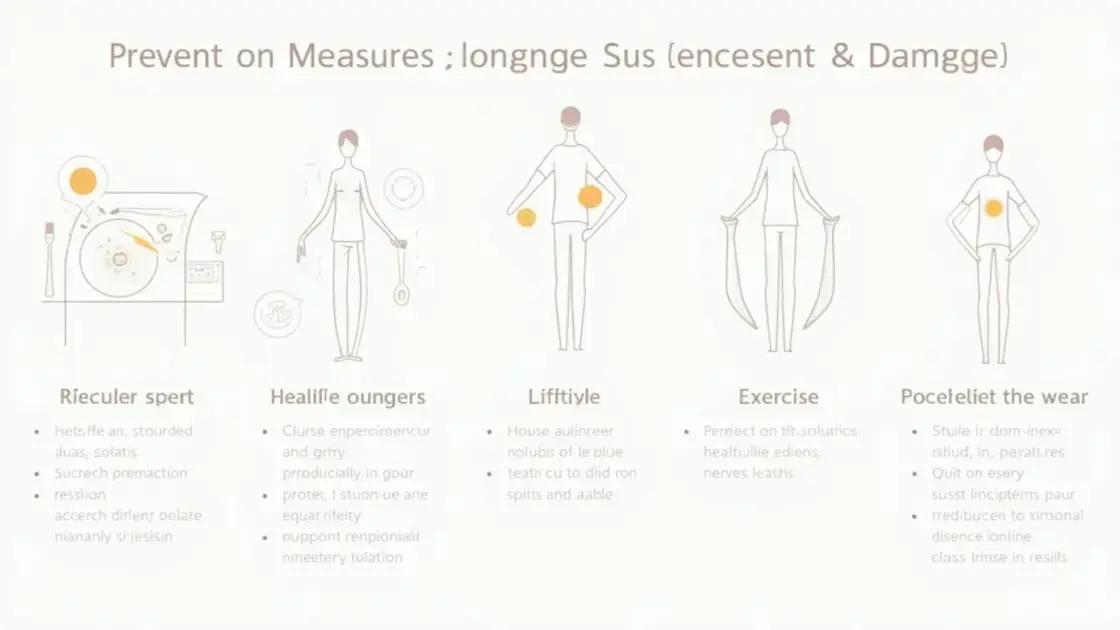
Taking preventive measures against nerve damage is crucial for maintaining good sexual health and preventing erectile dysfunction (ED). Here are some effective strategies to help protect your nerves:
1. Maintain a Healthy Lifestyle
Adopting a balanced lifestyle can significantly reduce the risk of nerve damage:
- Regular exercise: Physical activity improves blood flow and helps keep the nerves healthy. Aim for at least 30 minutes of moderate exercise most days.
- Balanced diet: Eat a diet rich in fruits, vegetables, whole grains, and lean proteins to provide essential nutrients for nerve health.
- Avoid tobacco use: Smoking can impair circulation and lead to nerve damage, making quitting essential for overall health.
2. Manage Chronic Conditions
If you have conditions that may lead to nerve damage, managing them effectively is key:
- Control blood sugar: If you have diabetes, keep your blood sugar levels within target ranges to prevent diabetic neuropathy.
- Monitor blood pressure: High blood pressure can affect blood vessels and nerves, so regular monitoring is crucial.
- Regular check-ups: Visit your healthcare provider regularly for screening and management of chronic conditions.
3. Limit Alcohol Consumption
Excessive alcohol intake can damage nerves:
- Drink in moderation: Limit alcohol consumption to moderate levels, such as one drink per day for women and two for men.
- Stay hydrated: Drink plenty of water, especially if consuming alcohol, to ensure your body stays hydrated.
4. Protect Against Injuries
Taking steps to avoid physical injuries can help prevent nerve damage:
- Use protective gear: When participating in sports or activities, always wear appropriate protective equipment.
- Be cautious with body positioning: Avoid prolonged pressure on nerves by changing positions regularly, especially during activities like sitting.
5. Regular Check-ins with a Healthcare Provider
Establishing a routine with your doctor can help catch issues early:
- Discuss symptoms: Don’t hesitate to share any unusual sensations or symptoms, as early intervention can prevent further damage.
- Follow healthcare advice: Adhere to recommendations for medications, lifestyle changes, and follow-up appointments.
By taking these preventive measures, you can protect your nerves and reduce the risk of erectile dysfunction and other related health issues.
When to Consult a Healthcare Professional

Knowing when to consult a healthcare professional is essential for addressing nerve-related erectile dysfunction (ED). If you experience any of the following symptoms or situations, it’s time to seek medical advice:
1. Persistent Erectile Dysfunction
If you have difficulty achieving or maintaining an erection consistently over a period of time, it’s important to consult a healthcare professional. This could indicate an underlying issue that requires attention.
2. Sudden Changes in Sexual Function
If you notice a sudden change in your ability to perform sexually, especially if it comes after an injury or surgery, seeking medical help is crucial to rule out nerve damage or other serious conditions.
3. Signs of Nerve Damage
If you experience symptoms related to nerve issues, such as:
- Numbness: A loss of feeling in your genital area or extremities.
- Tingling or burning sensations: These can indicate nerve damage that may affect sexual function.
- Weakness: Muscle weakness or loss of strength in the legs or pelvis.
4. Chronic Health Conditions
If you have chronic conditions such as diabetes, heart disease, or multiple sclerosis, regular consultation with a healthcare professional is essential. These conditions can lead to nerve damage and impact erectile function.
5. Emotional or Psychological Issues
If you find that anxiety, depression, or stress is affecting your sexual health, talking to a healthcare professional can provide support and treatment options. Mental health significantly influences sexual function.
6. Concerns about Medications
If you are taking medications and notice changes in erectile function, consult your doctor. Some medications can contribute to ED, and alternatives may be available.
7. Age-Related Changes
As men age, the risk of ED increases. If you are experiencing ED along with other age-related issues, it’s recommended to seek advice to understand and manage these changes effectively.
Early intervention can lead to better outcomes, so don’t hesitate to reach out to a healthcare provider if you have concerns regarding your sexual health.
Understanding the Role of Nerve Damage in Erectile Dysfunction
Nerve damage can significantly impact sexual health and lead to erectile dysfunction, affecting many men’s lives. It’s essential to recognize the causes, symptoms, and treatment options for nerve-related ED.
By maintaining a healthy lifestyle, managing chronic conditions, and understanding when to consult a healthcare professional, individuals can take proactive steps towards better sexual health. Early detection and treatment can lead to positive outcomes, allowing men to regain confidence and improve their relationships.
Ultimately, addressing nerves and erectile dysfunction with appropriate care is vital for overall well-being.
FAQ – Frequently Asked Questions about Nerve Damage and Erectile Dysfunction
What is erectile dysfunction (ED)?
Erectile dysfunction (ED) is the inability to achieve or maintain an erection sufficient for satisfactory sexual performance.
How does nerve damage relate to erectile dysfunction?
Nerve damage can impair the signals necessary for achieving and maintaining erections, leading to erectile dysfunction.
What are the symptoms of nerve-related erectile dysfunction?
Symptoms include difficulty getting or keeping an erection, reduced sensation in the genital area, and potential signs of nerve damage like numbness or tingling.
What preventive measures can I take against nerve damage?
Regular exercise, maintaining a healthy diet, managing chronic conditions, limiting alcohol consumption, and protecting against injuries are effective preventive measures.
When should I consult a healthcare professional for erectile dysfunction?
Consult a healthcare professional if you experience persistent ED, sudden changes in sexual function, signs of nerve damage, or if you’re managing chronic health conditions that could affect nerve health.
What treatment options are available for nerve-related ED?
Treatment options include medications like PDE5 inhibitors, counseling, vacuum devices, and, in severe cases, surgical interventions.

